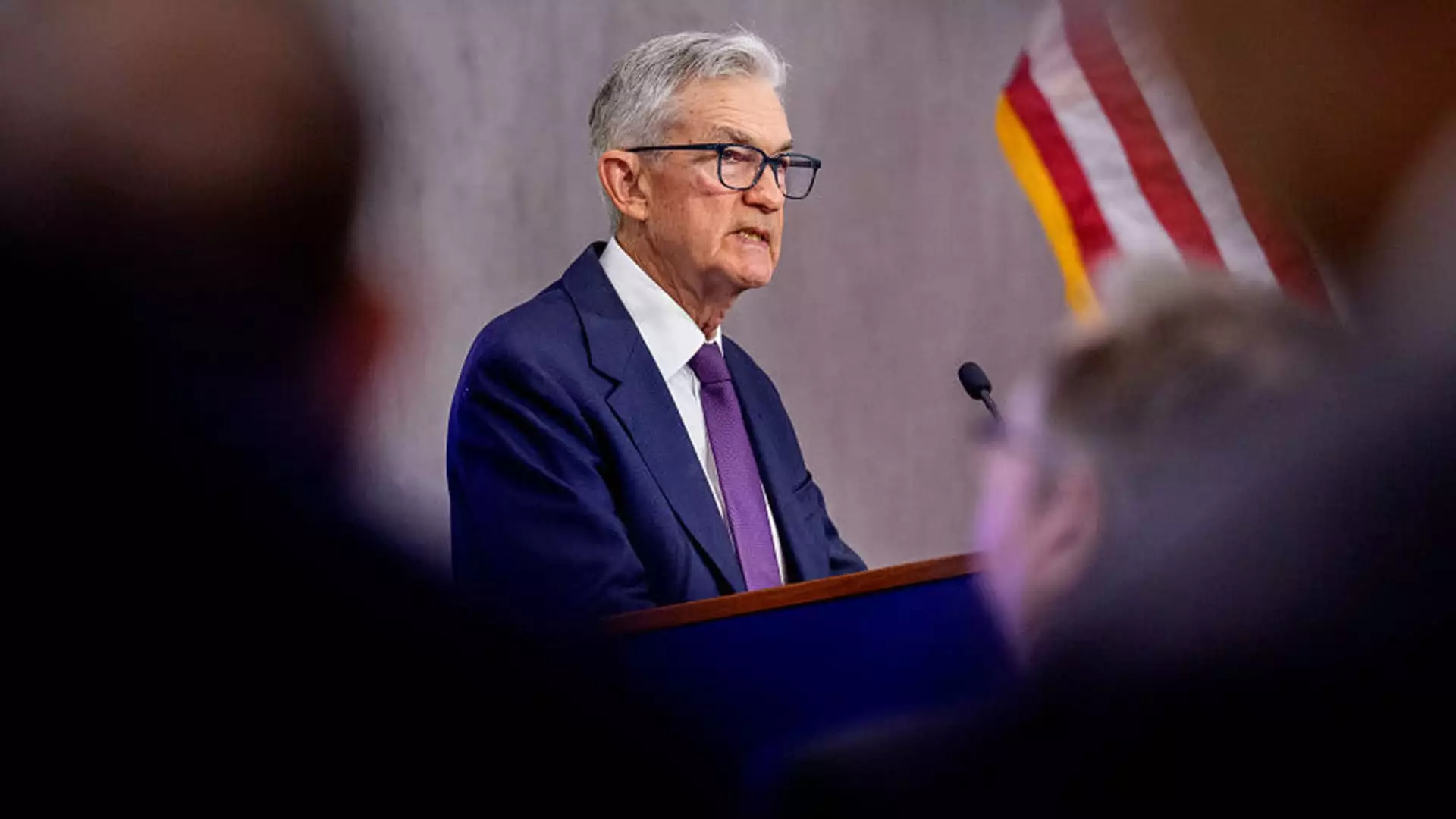In a spectacle that underscores the frosty relationship between President Donald Trump and the Federal Reserve, the swirling narrative of interest rate cuts serves as a symbol of a larger mismanagement of economic policy. Trump’s repeated calls for Federal Reserve Chairman Jerome Powell to slash interest rates—now described almost in desperation—reveal a troubling tendency toward short-sightedness. The latest numbers from ADP, indicating a meager increase of just 37,000 private sector jobs, starkly juxtapose the idealistic projections floated by the administration. It’s an alarming signal that goes beyond just one unfortunate data point; it exposes systemic flaws within an administration obsessed with immediate gratification at the cost of long-term economic sustainability.
While it’s tempting to dismiss Trump’s tweets as mere political theater, one has to pause and recognize the implications of such rhetoric. When a sitting president insists that the Fed, an independent body, should bow to his whims because Europe has made more aggressive moves to reposition its economy, it raises serious questions about the integrity of fiscal governance. Trump’s insistence that Powell “must now LOWER THE RATE” reflects a fundamental misunderstanding of economic principles: that monetary policy should be based on stability rather than political convenience. This attitude amplifies existing tensions between fiscal responsibility and political populism.
The Perils of Political Economics
It’s commonplace for politicians to exert influence over economic institutions, but the frequency and fervor with which Trump pursues Powell haunt any credible economic narrative. The irony of Trump’s claim that higher interest rates place the U.S. at a disadvantage compared to countries like China highlights another critical issue: an evasion of responsibility. By demonizing the Fed Chairman and labeling him “Too Late,” Trump deflects accountability for the complexities of global economics and the multifaceted issues facing American workers.
The underlying mechanics of interest rate adjustments reveal a different story—one requiring talent and patience, not knee-jerk reactions. Monetary policy is a balancing act, one that should prioritize stability over a politically expedient surge in growth. Trump’s desire for quick fixes might satisfy his base temporarily, but it leads to a deeper rot where economic decisions become enmeshed in the volatile fabric of political motivations. This threatens long-term recovery and undermines more serious economic endeavors, such as innovation and sustainable job creation.
The European Contrast and Future Implications
The juxtaposition of the U.S. economy with the European Central Bank’s recent decision to lower rates underscores the limitations of America’s current strategy. As Europe inches towards adjustments aimed at tempering sluggish growth amid easing inflation, the U.S. faces an entirely different reality that demands a more measured approach. The temptation to replicate European strategies will prove costly if they are not adapted to the American context, and it risks sowing confusion among policymakers and economists alike.
Moreover, the looming anxieties related to Trump’s fluctuating tariff policies and unpredictable geopolitical maneuvers further complicate an already intricate economic landscape. Rather than harmonizing with the global economic rhythm, his approach creates waves of uncertainty, which disincentivize investment and can wreak havoc on the job market. As the upcoming Bureau of Labor Statistics (BLS) report is set to unveil fresh figures and insights, the nation stands at a crossroads where more informed economic stewardship is desperately needed.
A Call for Credibility in Economic Policy
Ultimately, one of the most distressing aspects of this ongoing saga between Trump and Powell is the erosion of trust in economic institutions. The Federal Reserve, in its role as an independent arbiter of monetary policy, should be shielded from the whims of political agendas. Increasingly, Trump’s impulsive critiques and demands undermine the credibility of the very economic framework that underpins American prosperity.
What America needs is thoughtful deliberation from its leaders—a vision grounded in data, not sensationalist outbursts. A robust economy relies on foundational principles and long-term strategies, rather than knee-jerk responses to fluctuating data points. For U.S. citizens, the stakes could not be higher; it is essential to advocate for an economic dialogue that values integrity and deliberation over unchecked populism and impatience. An economic framework responsive to the complex realities of global interdependence must emerge, safeguarding the interests of the American worker while fostering growth that is both sustainable and inclusive.


Leave a Reply